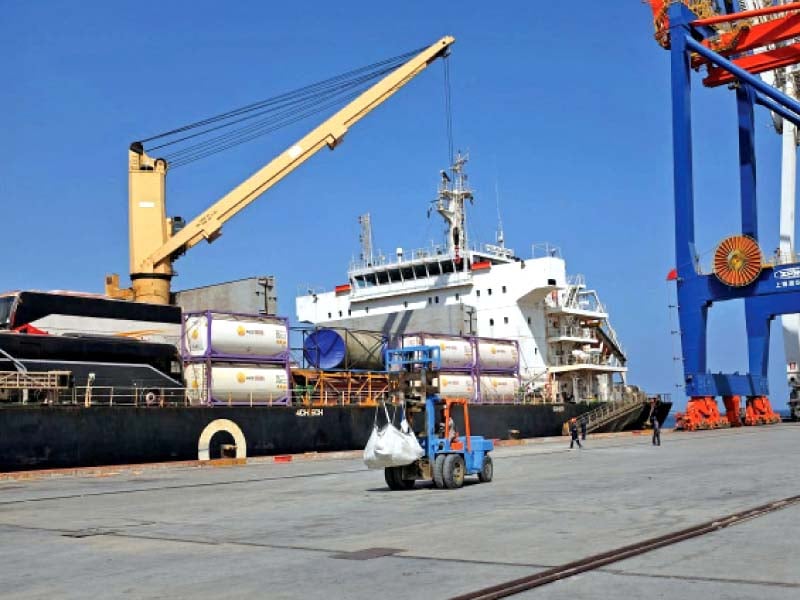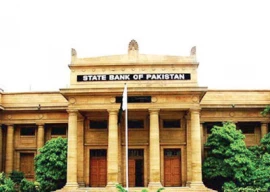
A crucial meeting of the Joint Cooperation Committee (JCC) of China-Pakistan Economic Corridor (CPEC) has been further delayed after both the countries could not agree on the future roadmap for industrial cooperation.
Pakistani and Chinese authorities have not yet been able to agree on a common agenda for holding the fifth meeting of the Joint Working Group (JWG) on Industrial Parks and Special Economic Zones (SEZs), said sources in the Ministry of Planning and Development.
The working group meeting has to take place before convening the next JCC meeting, which is the 10th in sequence, they added.
There are nine JWGs of CPEC that deal with every important sphere of economic cooperation. So far, seven groups have met while meetings of JWG on industrial cooperation and Gwadar have not taken place.
Sources said that the Gwadar working group could meet in a few days but the meeting of industrial cooperation group might take place by the end of current month. Industrial cooperation is the lynchpin of the second phase of CPEC.
The Foreign Office had tentatively scheduled the 10th JCC meeting for the end of October but later delayed it to mid-November.
JCC meeting could take place in the next three to four weeks, said Federal Minister for Planning, Development and Special Initiatives Asad Umar while talking to The Express Tribune.
He said that JWG meetings were “almost completed” and both sides were considering whether to hold face-to-face meeting or meet remotely due to the Covid-19 situation.
The minister said that Pakistan was also keen to make progress on an agreement on financing the Mainline-I project of Pakistan Railways during the 10th JCC meeting.
Total cost of the project is $6.8 billion and Pakistan is seeking $6.1 billion in Chinese loan, according to a decision taken by the Executive Committee of National Economic Council (Ecnec).
JCC is the highest decision-making body of CPEC, which is co-chaired by Pakistan’s minister for planning and development and the chairman of China’s National Development and Reforms Commission (NDRC).
JCC makes decisions on the inclusion of any new project into the CPEC framework and also takes stock of project implementation.
In 2014, Pakistan and China had announced that they would deepen their economic and strategic cooperation through CPEC, which is the pilot project of the trillion-dollar Belt and Road Initiative of the Chinese president.
Pakistan and China were successful in showing progress during the first four years of CPEC implementation and implemented nearly $25 billion worth of projects. However, things started slowing down after 2018 and there has hardly been any progress in the past two years.
China delayed the finalisation of agenda for holding the fifth JWG meeting on industrial cooperation, said Asim Ayub, Project Director of CPEC Industrial Cooperation, Board of Investment (BOI).
Pakistan had forwarded the agenda and draft minutes to Chinese authorities in April this year but they responded back just a few days ago, said the project director.
Ayub said that Pakistan was keen to sign the Framework Agreement on Industrial Cooperation as existing cooperation was only under a memorandum of understanding.
The project director said that Chinese authorities wanted to defer some of the agenda items till the next meeting but Pakistan’s desire was that these important issues should be taken up in the upcoming meeting.
BOI would not hush up things and wanted to have meaningful bilateral cooperation in the industrial sector, he added.
“The ball is in their court and Pakistan is awaiting Chinese response to the revised draft agenda,” said Ayub.
Under industrial cooperation, Pakistan wants to develop nine prioritised SEZs but the pace of work remains very slow. So far, Pakistani authorities have been able to start some sort of work on three industrial zones.
During the ninth JCC, it had been decided that Pakistan would provide infrastructure at zero point and one-window service to all SEZs. So far, the Rashakai SEZ is relatively at an advanced stage and 10 megawatts of electricity will be provided soon. But the procurement for gas pipeline is still in progress.
The government has not yet been able to finalise procedural formalities for the provision of electricity to the Allama Iqbal SEZ, Faisalabad.
For setting up the SEZ at Bostan, a feasibility study has been completed and the SEZ approval committee has officially approved the Bostan SEZ subject to some adjustments.
Pakistan has also not approved an incentive package and it has remained at the draft stage for the past five years.
Published in The Express Tribune, November 19th, 2020.
Like Business on Facebook, follow @TribuneBiz on Twitter to stay informed and join in the conversation.

1734773637-0/Untitled-(7)1734773637-0-405x300.webp)
1734772637-0/Untitled-(6)1734772637-0-165x106.webp)
1734769757-0/Untitled-(4)1734769757-0-165x106.webp)
1734765764-0/Untitled-(3)1734765764-0-165x106.webp)
1734764416-0/Untitled-(1)1734764416-0-165x106.webp)










1734587529-0/Express-Tribune-(1)1734587529-0-270x192.webp)







COMMENTS
Comments are moderated and generally will be posted if they are on-topic and not abusive.
For more information, please see our Comments FAQ